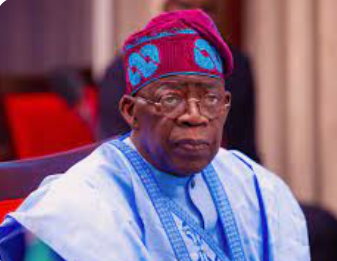
Tinubu cited the recent resumption of the social investment programmes as announced by the Minister of Finance, Mr Wale Edun, after Monday’s Federal Executive Council meeting, who said the six-week hiatus had enhanced its operations.
“These programmes will, therefore, ensure that the burden of the subsidy removal is shared equitably and that the most vulnerable among us are protected,” Tinubu said when he gave the keynote address at the seventh Nigeria International Energy Summit at the State House Conference Centre, Abuja, Tuesday.
Upon assuming office nine months ago, the Tinubu administration discontinued subsidies on petrol, which, he said, would save the government monies for infrastructural expansion.
He also unified the foreign exchange rates, moves that have sparked instability in the value of the Naira and heaped hardship on Nigerians as food prices continue to soar.
However, the President has insisted that the country is on a recovery path.
Addressing participants at the summit, Tinubu, represented by the Minister of Information and National Orientation, Mohammed Idris, said, “The decision to remove petroleum subsidy is a challenging one. But it is a step we must all take to secure our energy future and foster economic growth and development.
“The petroleum subsidy has, over the years, strained our economic resources, leading to inefficiencies and, most importantly, hindering our ability to invest in critical areas of energy security.
“By removing subsidies, we are creating a more transparent and accountable energy future. The funds that were previously allocated to subsidising petroleum products are now redirected towards developing and upgrading our energy and other social infrastructure.”
He cited recent figures from the National Bureau of Statistics, which showed an improved domestic capacity to produce oil by 8 per cent, a drop in petrol consumption by over a billion litres and capital import improving by about 66 per cent.
Acknowledging the immediate impact of these reforms on citizens, especially those with lower incomes, Tinubu said his administration was committed to continuing social intervention programmes that will ensure that “the burden of the subsidy removal is shared equitably.”
As Nigeria stands on the brink of a new era of energy transition, the President also highlighted the shift towards cleaner and more sustainable energy sources.
Tinubu, who spoke on the theme Navigating the new energy world order: security, transition, and finance, said the new era of energy transition is “not only an environmental necessity but also an economic opportunity.”
He called for innovation and collaboration to ensure a smooth, inclusive transition.
“While we are immersed in energy security, let us not forget that energy transition is another key aspect of our discussions.
“We stand on the brink of a new era, where traditional energy sources are then complemented and, in some cases, replaced by cleaner or more sustainable alternatives.
“We must leverage innovation and collaboration to ensure a smooth and flawless transition that will leave no one behind,” Tinubu said.
Over 6000 foreign and local delegates, exhibitors and visitors are attending the 7th Nigeria International Energy Summit, NIES 2024, in Abuja.
The global summit, which will run from February 26 to March 1, is being convened by the federal government as its official energy, oil, and gas event, with the Nigerian National Petroleum Company Limited as the national host.
Stakeholders are expected to chart a sustainable way forward to accelerate energy security, transition and finance.
Participants also received goodwill messages from the Minister of State for Petroleum Resources (Oil), Heineken Lokpobiri and his counterpart in Gas, Ekperipe Ekpo; Group CEO of the NNPCL, Mr Mele Kyari; Chairman of IPPG/Waltersmith Group, Abdulraaq Isa; OPEC Secretary General, Haitham Al Ghais; Secretary General of the African Petroleum Producers Organisation, Dr. Omar Ibrahim and the Permanent Secretary of the Ministry of Petroleum Resources, Nicholas Ella.














